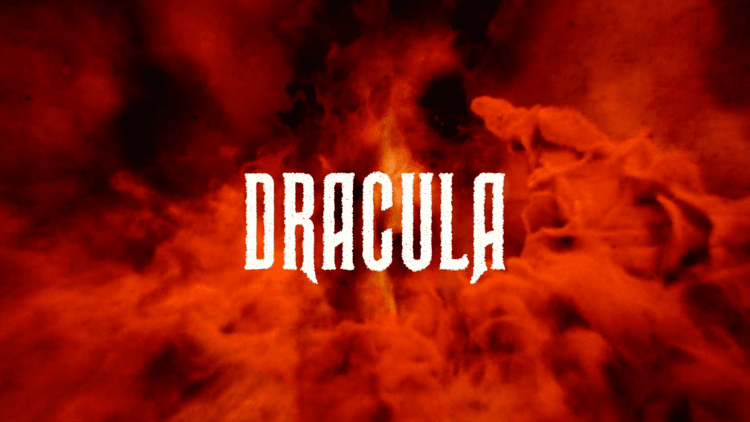
We begin 123 years away from the previous episode, with Dracula (Claes Bang) meeting Human Progress. He likes what he sees, especially the “flying thing” (a helicopter), and quickly adapts to his surroundings. He figures out the camcorder is a camera and how pointing a gun at someone helps you get what you want. He plays with one before using the other to take out an operative, point blank.
This isn’t Sister Agatha (Dolly Wells) on the beach, but her descendant, Zoe (also Dolly Wells) and for some reason, she wants Dracula to survive this night, even at great risk of danger.
Shortly after, a home invasion sees Drac watching a sunrise on the TV. He’s killed the homeowner’s husband and stuffed his undead corpse into the fridge. The wife paces around her kitchen, unsure what to do while he compliments her home (a modest apartment), and how rich she must be with all these comforts. “It’s a dump,” she says. He looks at her like she’s mad, and says, “It’s AMAZING.”
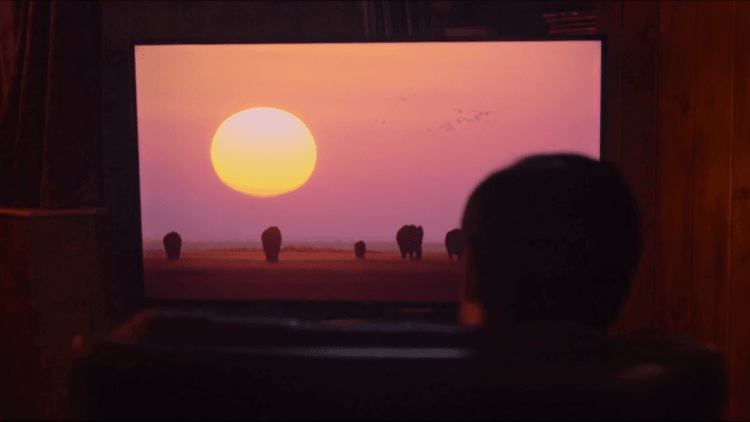
He tells her that he’s a vampire and allows her to ask him questions. She lands on the mirror myth, where vampires can’t see themselves. “I don’t see any less in the mirror than you do. I see more,” he says, as the camera moves to show us what he sees: age-accurate Dracula, looking quite ancient.
His time terrorizing this lady is cut short when Zoe Van Helsing arrives with a wrecker. Dracula is to get in the box upstairs (that Zoe’s provided him) or face the sunlight once the roof comes down. He counters by asking to meet face-to-face first. Of course, he immediately feeds on her but something’s amiss. He begins to vomit dark bile, and Zoe smiles as he passes out.
“Dark Compass” introduces Lucy (Lydia West) and Jack (Matthew Beard). The latter is smitten with Lucy, a lady who thrives on spontaneity, which includes marriage decisions. This turn of events blindsides Jack, who finally answers his phone. This whole time someone named “Jonathan Harker” wouldn’t stop calling. With his crush swept up, Jack answers and shortly arrives via limo at the Jonathan Harker Foundation (ah ha!)

The Harker Foundation was created by Mina, who used her father’s inheritance to study the monster that killed Jonathan. In the missing 123 years, a facility was created to hold the Count. Search teams were unable to find the wreckage of the ship until now and finally recovered the casket with Dracula still inside, in a “restorative coma.” One diver peels back his lips to have a look at the man’s gums, and get’s her finger bitten off. And so, Dracula awoke.
Following the home invasion, Dracula is securely imprisoned at the Foundation. We learn that vampires don’t need toilets, so there’s that. He’s in a sunlight-surrounded prison, with a tablet full of eBooks to occupy his time. He and Zoe verbally spar, as she takes a sample of his blood to study. He’s fascinated with her and how her bloodline moved from nun to scientist. She mentions Women’s Rights, and he laughs at the idea of “rights,” stating that civilization is a “lunatic fantasy.” He eventually works out that Zoe’s alone by choice and keeps people at bay. She has cancer, thus the bad blood that caused him to wretch up. Sister Agatha was dying (and did), and now her descendant is too.
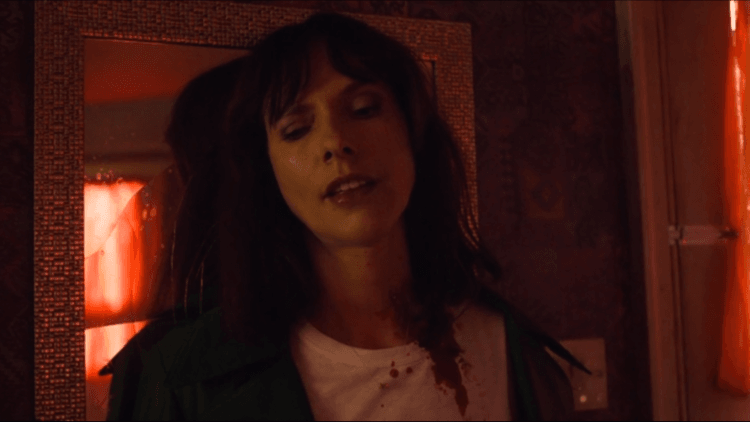
Unfortunately for Zoe, Dracula isn’t alone, having used his tablet to reach out. A man arrives and demands that Dracula be loosed. “This is Frank Renfield, we’ve been, uh, ‘Skyping,’” Dracula says. He’s lawyered up! We learn that Renfield’s family has been representing the Dracula estate since 1896. It’s rather silly, but Renfield is played by Mark Gatiss himself, and he’s always a delight to watch (he played Mycroft in Sherlock, if you’re unaware).
Count Dracula has rights so he leaves a free man. He expresses his wish to find the “perfect fruit,” a being that gives him what he needs, rather than just kill and eat everyone in sight. “I’m a gourmet, not a glutton,” he says.
The phrase, “Blood is lives” comes up often in “Dark Passenger.” “Absorbing” a life isn’t just for sustenance, but for knowledge and generational heritage. With this in mind, Zoe goes off alone and drinks the sample she took earlier.
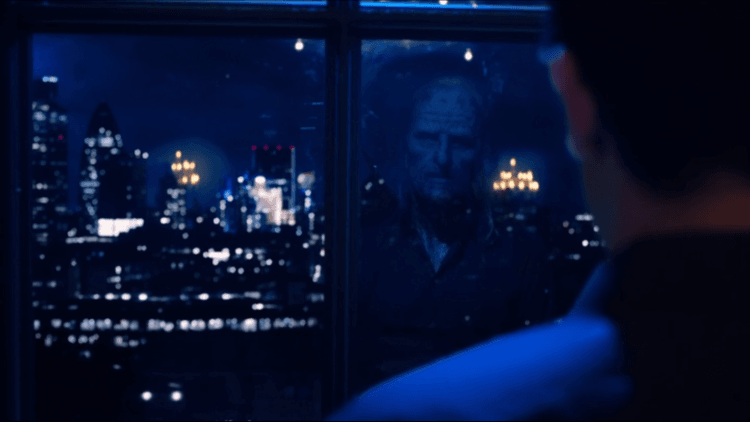
Jump ahead to 3 months later. Dracula’s on Tinder.
Renfield informs Dracula that his “lady friend” (Zoe) has left the Harker Foundation. The Count’s too distracted swiping profiles to pay the deteriorating Renfield any mind. He’s already swayed Lucy to his side, shortly after he was freed but he’s transfixed by the smorgasbord device he’s holding.
Gatiss & Moffat love to mix the past with present to highlight the absurdities of human “progress.” They did a similar thing in Sherlock with the irritable detective sending emojis that float across the screen for viewers and how he’d often turn technology against his foes. This satirical bit would be tired if they didn’t’ do it so well. It’s silly over preachy and works because they juxtapose these moments with something darker, like here, with the graveyard scene.
Lucy meets up with Dracula at a graveyard for some romance. He reveals to her that there is buried undead in every cemetery, destined to rot away in a claustrophobic space forever. Yeesh. They lie on the ground and listen to the scratching, then an undead child approaches, peeking from behind a tree. Dracula cautions her to not give the kid any attention. “He’ll follow you home.”
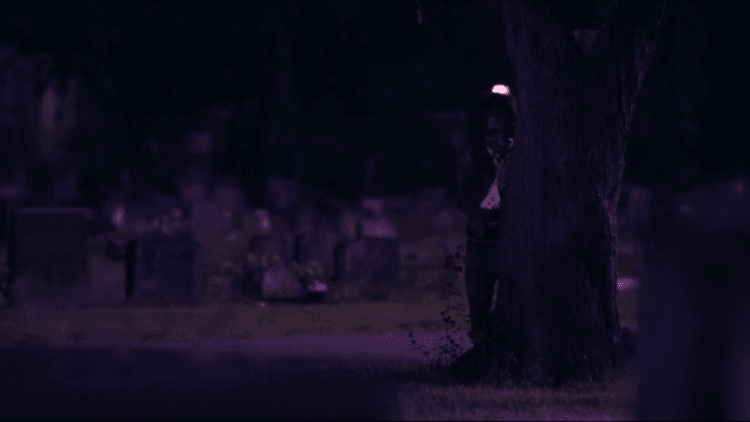
All the while, Lucy is fascinated, not scared. Dracula’s amazed at her attitude, saying, “You really don’t care, do you?” Not to say that Lucy’s callous — she’s just bored, lured in by the darkness on the edges. She’s doesn’t take anything seriously, as Dracula gets poetic with, “Death is the last unprinted snow.” She laughs, and says, “You’re talking shite.”
He feeds on her with the trade of good dream magic. “Put me somewhere beautiful,” she says, but only for 5 minutes. She wakes up in the hospital with Jack Harker at her side. He notices the scar tissue on her neck, a seam-looking fold. I haven’t mentioned that the classic puncture marks in Dracula look more like plasma donation scars.
She receives other visitors later, one of them being the undead child who crawls up the foot of the bed. Very horrific imagery here. Being the gentleman, Dracula stakes the kid then drinks Lucy dry like he’s doing her a favor. She’s laid to rest, awake in her coffin during the funeral. Dracula expects her to break out, but there’s one problem — she’s going to be incinerated.
Blood is life and Zoe’s connected to her ancestor, Agatha. As promised, the Sister traveled to England through the Count’s veins, and Zoe’s blood means Agatha’s inside her head. Wells plays dual roles here, and it’s entertaining to see the differences between the two characters. She’s an excellent yin to Dracula’s yang.
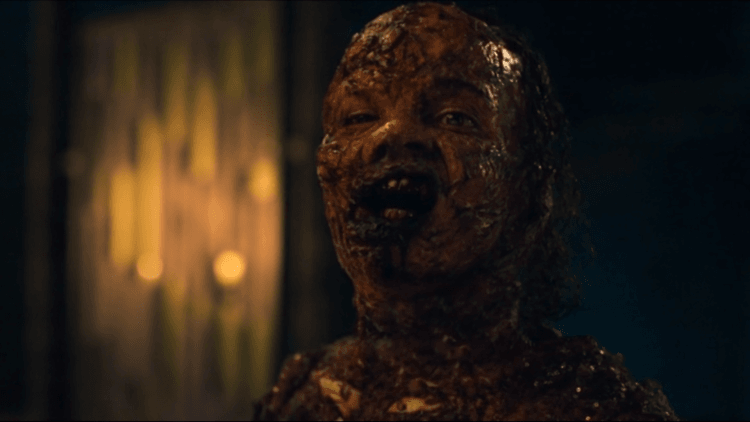
The climax sees Dracula and undead Lucy facing off against Zoe/Agatha and Jack (whose character only serves to wrap up Lucy’s story). Lucy suffered horrible burns but only sees herself as she used to. Once she sees her true appearance, she begs Jack to finish her. She’s in a pitiful state, but Dracula does nothing to help.
Jack promises a kiss and delivers, like she’s Eric Stolz in The Fly 2 (1989). He then stakes her at her insistence. Then, Zoe asks him to leave, and it’s our two leads alone.
Zoe/Agatha interrogates Dracula’s fears, and how he’s “Unwelcome everywhere” because he doesn’t possess the courage to die, thus the crucifix hurts him. “You will live forever in shame,” she says, then begins to fade away. Her disease has won, but Dracula — somewhat broken by her analysis — decides to drink her cancer away. I’m not sure if this means she’s now undead, still human, or just dead.
The first (only?) season of Dracula ends with the words, “After all this time, did you think I’d let it hurt?” Gatiss and Moffat took care to preserve the essentials of Bram Stroker’s creation and that care shows. “Rules of the Beast” is the strongest of the three episodes, but each has something to offer. It’s amusing to see Dracula navigate the modern world, same as Christopher Lee’s Dracula did (Dracula A.D. 1972), but the Gothic surroundings were greatly missed. If this is all G & M release, this works as an ending, but much like Sherlock, dead doesn’t always mean dead.
